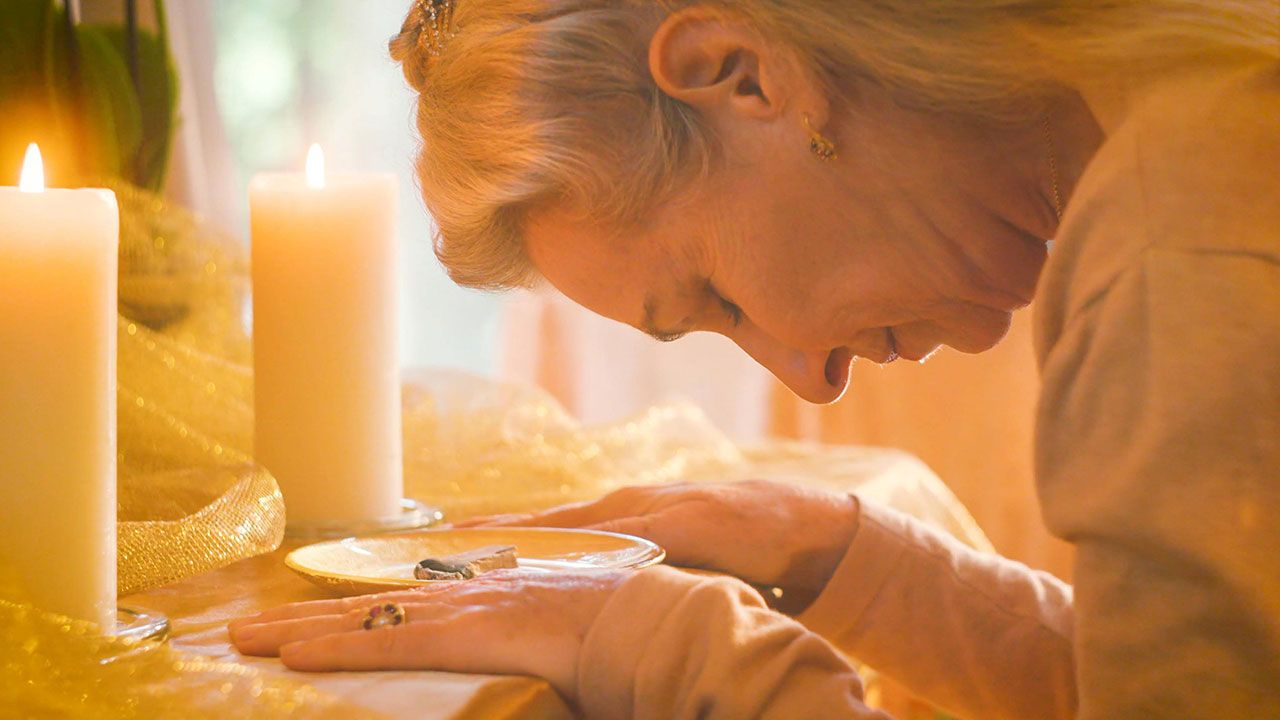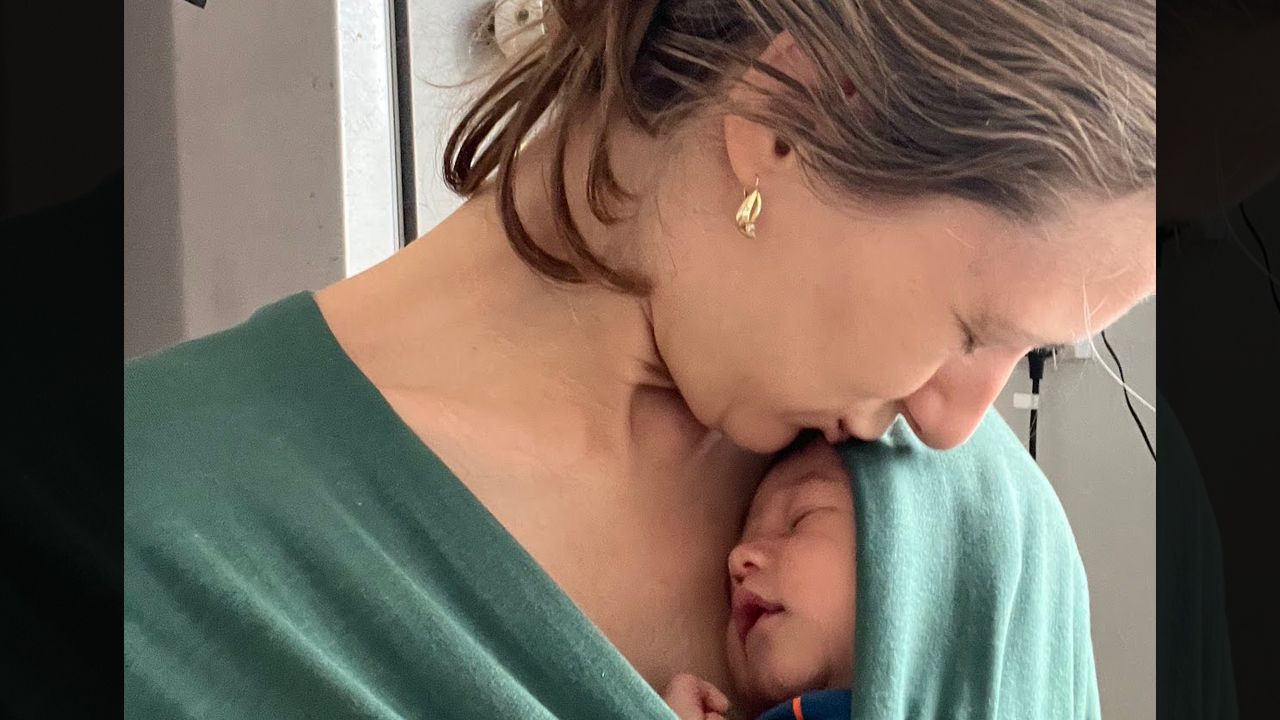14 Powerful Examples of Nurturing to Deepen Your Relationships
Dec 16, 2024
Question: “How can I nurture love in a stressful world where we are inundated with bad news on a daily basis?“
In modern life, where stress and external pressures can often strain even the strongest bonds, nurturing becomes an essential practice in sustaining and deepening personal relationships. The ability to consciously cultivate environments of love, trust, and mutual growth is not just beneficial, it’s transformative.
Through intentional actions and mindful practices, nurturing has the power to turn ordinary relationships into extraordinary ones, fostering deeper relationships that withstand the challenges of a stressful world.
What is Nurturing?

Nurturing is the deliberate and ongoing act of providing care, support, and guidance to encourage growth and well-being. In relationships, nurturing is about recognizing and responding to the emotional, physical, and spiritual needs of your partner, friend or family member in a way that nurtures both individual and collective resilience. It is not a one-time act but an ongoing commitment to creating an environment where love can flourish and both persons can evolve together.
Nurturing can take many forms, emotional support during tough times, physical care when one is unwell, intellectual encouragement through shared learning, or spiritual guidance that deepens your connection. The essence of nurturing lies in its ability to create conditions where growth and positive change are not just possible, but inevitable.
Importance of Nurturing in Relationships
Nurturing is the bedrock of any healthy relationship. It builds the foundation upon which trust, respect, and love are constructed. In personal relationships, nurturing is essential for developing self-esteem and emotional intelligence within both partners. It is through nurturing that individuals learn to understand and meet their own needs as well as those of their partners.
This mutual care creates a safe space where both individuals can thrive, even when life presents its inevitable challenges. Nurturing is what transforms a relationship from a mere connection into a deep, enduring partnership where both people feel seen, heard, and valued.
Creating a Positive Environment in Relationships

Creating a positive environment in a relationship starts with the establishment of clear boundaries and expectations. These boundaries act as a foundation within which love and trust can grow. They are not limitations, but rather guidelines that help each partner understand what is needed to feel secure and respected.
Mutual respect and open communication are critical in creating a safe emotional space where both partners feel valued and understood. Regular check-ins can be an effective way to ensure that both partners are on the same page emotionally. These check-ins don’t need to be formal; they can be as simple as asking, “How are we doing?” during a quiet moment.
For instance, a weekly “relationship meeting” could serve as a time to discuss any issues, celebrate successes, and plan for the future together. This consistent practice ensures that both partners feel heard and appreciated, strengthening the bond over time.
The Importance of Recognition and Appreciation
Recognition is another crucial component of a positive environment in relationships. Simple gestures of appreciation can significantly impact the dynamic between partners. For instance, acknowledging your partner’s efforts, whether it’s making dinner, supporting you after a tough day, or simply being there, helps each partner feel valued and loved.
NThis recognition doesn’t have to be grand; often, it’s the small, consistent acts of gratitude that reinforce the bond and keep the relationship strong. A heartfelt note, a spontaneous act of kindness, or a sincere thank you can go a long way in nurturing the relationship.
Dealing with Conflict and Providing Support During Uncertainty

In a nurturing relationship, partners approach conflicts not as adversaries, but as a team facing the problem together. This perspective shift is crucial because it changes the dynamic from “me versus you” to “us versus the problem.”
For example, during a period of job uncertainty, one partner might take on more household responsibilities to reduce stress for the other, showing empathy and understanding. This act of support goes beyond the immediate situation, reinforcing the idea that the relationship is a partnership where both individuals are invested in each other’s well-being.
Encouraging adaptability and flexibility is also vital in relationships. Life doesn’t always go according to plan, and the ability to adapt to new circumstances is a sign of a healthy partnership. For instance, if a couple had plans for a big event that got canceled due to unforeseen circumstances, they could use the opportunity to create a memorable experience at home instead. This adaptability not only strengthens the relationship but also fosters a mindset that views challenges as opportunities for growth.
Using the Environment to Promote Growth in Relationships

Creating spaces that promote reflection and connection can be incredibly beneficial. For example, setting up a cozy corner in your home for shared moments of mindfulness or meditation can become a daily ritual that strengthens both individual and shared awareness. This space becomes a sanctuary where both partners can relax, reflect, and reconnect.
Encouraging self-reflection and introspection within the relationship can be achieved through regular practices like journaling or shared mindfulness exercises. Partners might take time to write down their thoughts and feelings about the relationship, then share them in a calm and supportive setting. This practice helps both individuals better understand themselves and each other, leading to deeper emotional intimacy.
Building Self-Esteem in Relationships

At the heart of building self-esteem within a relationship is the journey toward self-awareness. This process allows individuals to recognize their intrinsic value and capabilities, both independently and within the partnership.
One effective strategy for promoting self-awareness is through regular self-reflection. This can be facilitated by journaling, meditation, or simply setting aside time to contemplate personal growth. In the context of a relationship, partners can encourage each other to engage in these practices, sharing their insights and supporting each other’s journeys. Positive feedback from partners can further enhance this process, reinforcing each other's growth and achievements.
Our Tantra events are designed with this in mind, offering guided meditations and breathwork sessions that facilitate deep introspection and self-discovery. These practices help individuals uncover layers of self-doubt and negative self-perceptions, replacing them with a profound understanding of their worth and potential. By engaging in such practices together, partners can strengthen their bond while also enhancing their individual self-esteem.
Encouraging self-directed growth within the relationship is another critical aspect of building self-esteem. Unlike conventional workshops that follow a rigid curriculum, our Tantra events encourage participants to explore the teachings at their own pace, aligning with their personal journey.
This might involve engaging in specific workshops that resonate deeply with them, such as sessions on harnessing sexual energy for empowerment or workshops focused on healing past traumas. By allowing individuals to choose their path, we empower them to take ownership of their personal development, which is a critical component of building self-esteem.
Techniques for Creating a Positive and Supportive Environment
Prioritize Open and Honest Communication

It’s important to establish an environment where both partners feel comfortable expressing their thoughts, feelings, and concerns without fear of judgment or retribution. This involves actively listening to each other, acknowledging each other’s perspectives, and responding thoughtfully. Regularly checking in with your partner about how they’re feeling, what they need, and how you both can improve the relationship can foster deeper connections and mutual understanding.
Practice Whole Listening
Whole listening goes beyond simply hearing what your partner says. It involves fully engaging with their words, reflecting on what they’re communicating, and then mirroring back what they have said, making sure that they feel fully heard. This shows deep empathy. When your partner speaks, give them your undivided attention, put away distractions, make eye contact and listen with your whole body including all of your senses.
By doing this, you validate their feelings and demonstrate that their thoughts and emotions are important to you. After one partner has shared in this way and been fully heard, you can then exchange roles. This practice also builds social proof, as it fosters trust and credibility in your relationship.
Show Appreciation and Gratitude
Regularly expressing appreciation for your partner is essential in maintaining a positive environment. Acknowledge the little things they do, whether it’s cooking a meal, offering emotional support, or simply being there for you. Gratitude can be shown through words, gestures, or acts of kindness. This not only makes your partner feel valued but also reinforces the positive aspects of the relationship, creating a cycle of mutual appreciation.
Encourage Individual Growth

A supportive relationship is one where both partners feel empowered to pursue their personal goals and dreams. Encourage your partner to take up hobbies, learn new skills, or advance their career. Celebrate their achievements and be there for them during challenges. By supporting each other’s growth, you build a stronger partnership that thrives on mutual respect and admiration. When partners see the value in their growth, they are more willing to spend time on activities that foster personal development.
Practice Empathy and Understanding
Empathy involves putting yourself in your partner’s shoes and understanding their emotions and perspectives. This is crucial during conflicts or when your partner is going through a difficult time. Instead of rushing to judgment or offering unsolicited advice, try to understand how they feel and why they feel that way. Expressing empathy can de-escalate tensions and strengthen the emotional bond between you.
Nurture Love Amidst Stress

In a world often filled with stress and negativity, it’s essential to consciously nurture love within your relationship. Begin by practicing mindfulness in everyday interactions. For example, when looking into your partner’s eyes, see beyond the surface and connect with their soul.
This practice deepens intimacy and reminds you both of the love that forms the foundation of your relationship. Engage in small rituals, such as drinking water slowly while silently repeating a mantra of love and gratitude, or calling in a blessing for the meals you share, to infuse your daily life with love and connection.
Connect with Nature Together
Spending time in nature can be incredibly grounding and healing for both individuals and couples. Take time to embrace a tree, feel its soul, and let this connection deepen your bond with each other and with the natural world. Lie on the earth together, feeling supported by Mother Earth, and breathe deeply, sharing a moment of gratitude for the life and sustenance she provides. These practices not only foster a positive environment within your relationship but also enhance your connection to the world around you.
Build Trust Through Consistency and Reliability
Trust is a foundational element of any healthy relationship. Building trust requires consistency in your actions and words. Keep your promises, be reliable, and show your partner that they can count on you. Trust also involves being open and honest about your intentions, feelings, and any challenges you might face. When both partners feel secure in the relationship, it creates a supportive environment where love and commitment can flourish.
Create Shared Rituals and Traditions

Shared rituals and traditions, whether daily, weekly, or yearly, can help solidify a relationship. These can be as simple as a nightly walk together, a weekly date night, or celebrating milestones in unique ways. These rituals provide stability and something to look forward to, reinforcing the connection between partners and creating lasting memories.
Respect Each Other’s Boundaries
A positive relationship requires respecting each other’s personal boundaries. This includes understanding and accepting your partner’s need for personal space, time alone, or limits in certain aspects of the relationship. Discuss and establish boundaries together, ensuring that both of you feel comfortable and respected. Honoring these boundaries helps build trust and shows that you value your partner’s individuality.
Support Each Other’s Emotional Needs
Being emotionally supportive means being there for your partner during times of need, whether they require comfort, encouragement, or simply a listening ear. Pay attention to their emotional cues and be proactive in offering support. Sometimes, it’s about being present and offering reassurance; other times, it might involve helping them navigate a difficult situation. Emotional support strengthens the bond and creates a nurturing environment where both partners feel safe and valued.
Practice Forgiveness and Let Go of Resentments

No relationship is perfect, and conflicts or misunderstandings are inevitable. What matters is how you handle these situations. Practicing forgiveness is crucial in maintaining a positive relationship. Holding onto grudges or past mistakes can create a toxic environment. Instead, address issues directly, express how you feel, and work together to move past them. Forgiveness doesn’t mean forgetting, but it does mean choosing to move forward without letting past hurts dictate the future of the relationship.
Conscious Emotional Release
Emotions are part of human nature. Everyone has them and in fact, they are like weather. Just as weather patterns maintain a dynamic balance in our environment, the changing play of emotions keeps a dynamic balance in our inner environment. Just imagine a world where there was no weather patterns.. it would be a stagnant world. Pretending not to have certain emotions creates stagnation within oneself and in relationship with others.
Some emotions have been repressed in many people and lead to the volcano effect, where they suddenly erupt and spew out on those closest to them. This manner of expressing emotions is not helpful and indeed can become the nail in coffin of a relationship if spewed out unconsciously over and over.
It is essential for each individual to take responsibility for their own emotions and to learn how to release emotions such as anger, grief, fear and stress harmlessly on a cushion or a punching bag rather than dumping these on your loved one. It is recommended after a session of conscious emotional release, to sit in front of the cushion or punching bag in meditation and silent witnessing for 5 or 10 minutes, allowing everything to settle, then bow in gratitude to the cushion or punching bag.
You may be amazed how much more appreciation you have for life and for your loved one after a conscious emotional release session.
Embrace Gratitude and Abundance
Living with an attitude of gratitude can significantly enhance the positivity in your relationship. Take time each day to appreciate the abundance of love, support, and blessings in your life. Whether it’s expressing gratitude for your partner, the beauty of nature, or the warmth of the sun, this practice cultivates a mindset of abundance and contentment. As you focus on love and gratitude, you’ll find that more love naturally flows into your relationship, enriching both your lives.
Conclusion
Nurturing is not just a practice; it is a fundamental approach to life that shapes how we interact with ourselves and others. In relationships, nurturing is essential for cultivating self-esteem, confidence, and emotional intelligence, laying the groundwork for deep and lasting connections. By embracing nurturing behaviors, we create environments where both partners feel valued and supported, allowing them to develop a deep sense of purpose, direction, and mutual growth.
Frequently Asked Question
What are examples of nurture in relationships?
Examples of nurturing in relationships include offering emotional support to your partner during difficult times, actively listening to their concerns without judgment, providing physical care when they are unwell, and encouraging their personal growth by supporting their goals and dreams. Nurturing also includes random acts of loving kindness and physical demonstrations of love, such as hugging, cuddling and massage
What is being nurturing?
Being nurturing means offering care, support, and guidance with the intention of fostering growth and well-being in your partner. It involves being attentive, empathetic, and committed to meeting your partner’s needs, whether they are emotional, physical, or spiritual. Nurturing is about creating an environment where love and trust can flourish. Nurturing also includes being open yourself to receive love and appreciation from your loved ones and to allow yourself to be open to pampering. The more you can be open to receiving nurturing, the more likely it is that you can offer nurturing to others.
What are examples of nurturing and attachment?
Nurturing and attachment are closely linked, particularly in relationships where deep emotional bonds are formed. Examples include consistently responding to your partner’s needs with love and attention, which strengthens the emotional bond and sense of security within the relationship.
What are the 5 components of nurturing care?
The five components of nurturing care encompass responsive caregiving, which involves attentively meeting the needs of your partner and ensuring they feel understood and valued. Safety and security are also crucial, as they create a stable environment where both partners feel protected and free to express themselves. Health and nutrition play a vital role by providing the physical care necessary for overall well-being, including access to nutritious food and healthcare. Opportunities for early learning are important, as they encourage intellectual and personal development through educational activities that stimulate growth.















